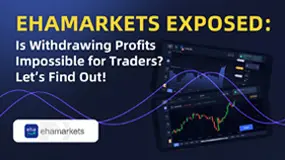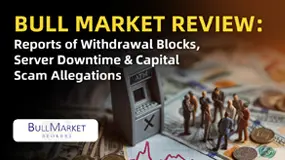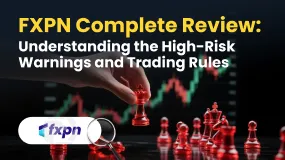Abstract:Before you begin to trade the equity, markets there are several things you should know about them including, the payouts, the leverage and the different ways traders can take a view that share prices will rise or fall.

The equity markets provide investors will the ability to take a view on individual company shares as well as sectors and indices. Stocks are considered riskier assets, and generally outperform other assets such as bonds, currency and commodities when global economic output rise.
What is a Share?
Each public company listed on an exchange provides an opportunity to own a piece of that company. An individual share is a partial ownership of a company. Some shares even provide the owner with the right to vote on specific issues related to the company. When you sum the total outstanding shares at a company and multiply the number of shares by the price of the stock, you can calculate the total market cap of the company.
Shares can be listed on an exchange. There are major exchanges such as the NYSE and the Nasdaq as well as several minor exchanges. Each exchange as a specific criterion which allows the shares to trade on the exchange. In some cases, if the share price falls below a specific level, the stock can be delisted from the exchange.
A share also represents a portion of a companys distribution in any profits. The two main types of shares are common shares and preferred shares. In the past shares came in the form of paper certificates which have now been replaced with an electronic recording of a certificate.
What is a dividend?
A dividend is the distribution of a company‘s profits. It is distributed by the company as a reward for owning shares of the company. Dividends are decided and managed by the company’s board of directors and need to be approved by the shareholders. Dividends are generally issued as cash payments, but they also can be distributed as shares of stock. In addition, exchange traded funds as well as mutual funds distribute dividends.
The board of directors of a company can determine the distribution mechanism as well as the timing when a dividend is released. The payout rates can also change throughout a year. Dividends are generally distributed quarterly, but some shares or ETFs payout their dividend monthly or annually.
Who Pays a Dividend?
Well establish companies, that have steady earnings and predictable cash flows are good dividend payers. Start-up companys that are attempting to get their feet on the ground and need cash due to ad-hoc cost scenarios, are not good dividend payers. When businesses are in the early stages of expansion, they may not have enough funds to issue dividends. Good dividend paying companies are attempting to generate shareholder wealth via another mechanism outside of capital gains.
Here are some key dividend dates. Dividends are announced by company management on the dividend announcement date but still must be approved by the shareholders before the dividend can be paid. The date you need to own the shares by to be eligible for a dividend is the ex-dividend date. The payment date is the date that the company issues the dividend to its shareholders.
Types of Shares
There are several ways to take a view that the share of a company will rise in value. The most popular is common stock. This provides an owner with the right to receive a portion of the profits, as well as, earnings. In addition, a common stockholder has the right to vote on company issues.
An alternative is preferred stocks. Preferred shareholders have priority over common stockholders when it comes to dividends payments. These dividends generally have a higher yield relative to common stock and can be paid monthly or quarterly. Unlike common shareholders preferred shareholders have limited rights which usually does not include voting. Preferred shareholders also have a higher claim on recouping their capital if a company elects to go into bankruptcy. Preferred shares are more like bonds that stocks and usually have a fixed rate of return.
Quality Companies that Reinvest Profits
There is no rule that says investing in dividend stocks will be the only way to generate gains. Other opportunities do exist. There are several quality companies that do not offer dividends where the companies reinvent the capital which has the potential to be made up for in stock appreciation.
Many companies generate strong cash flow, have minimal debt and report robust earnings. Tech and biotech companies can provide substantial cashflow to generate operating profits. Here are six companies that can provide robust capital appreciation.
Generating Capital Gains with Contracts for Differences
Common stocks are more attractive then preferred stocks if you are interested in generating capital gains. An alternative option for trading to common stocks is contract for differences (CFDs). These are financial products that track the underlying change in the value of a common stock. There are several benefits to using CFDs instead of purchasing common stocks.
A contract for differences provides investors with leverage that is beyond what is available when trading common shares. Since a contract for difference only tracks the change in the value, your broker does not need you to post the entire value of the shares. Instead they only need you to post enough margin to capture any potential loss you might experience when trading.
Leverage on CFDs on shares can reach 100-1, depending on the shares, allowing you to post only a small portion of the value of the shares. For example, if you want to trade Apple shares with a price of $200, you might only need to post $2, as opposed to $200 for each common share. One of the downsides of trading CFDs is that brokers generally do not offer dividend payments to holders of CFDs.
A CFD is a more efficient way to trade shares if your goal is specifically to capture the changes in the price of a share. There are also many brokers who offer CFDs on Exchange Traded Funds (ETFs). The instruments allow you to take a view on an entire sector such as the technology sector or the financial space. Like shares, brokers generally do not pay a dividend to owners of CFDs on ETFs.
Summary
Common stocks are the most popular way investors take ownership of a company. These shares provide an investor with voting rights as well as dividend payments. Preferred shares provide investors with a higher yield and a better claim to a companys dividends. If your goal is to take a directional view of share prices, then contracts for difference are a more efficient way to invest in shares.








